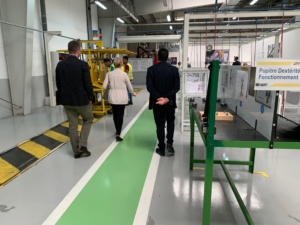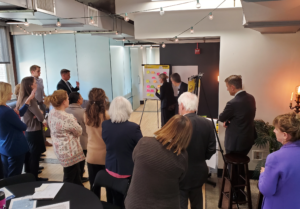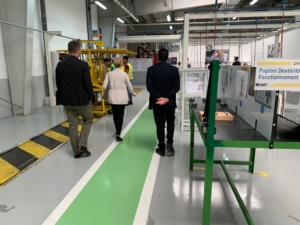Middle East Bureau Support for Private Sector Engagement (PSE)
Integra, under the USAID Learning, Evaluation, and Analysis Project (LEAP III) mechanism, was tasked by the USAID/Middle East Bureau (“the Bureau”) to support PSE for the Bureau and interested MENA Missions in 2019 and 2020. In the Fall of 2019 under Phase I of the Activity, the LEAP III team assisted the Bureau, Egypt, Morocco, Yemen, Libya, Tunisia and Iraq Operating Units (OUs) in co-developing their PSE Action Plans. To do so, the LEAP III team analyzed existing strategy documents and carried out desk research, which entailed reviewing Mission portfolios, their internal priorities, and the perceived strengths and obstacles to conducting business within each host country. The team also conducted remote consultations with staff at each Mission, including the PSE point of contact (POC). These consultations included a discussion of the Mission’s past PSE experience, its understanding of the PSE Policy, potential limitations in resources or funding, and any skepticism as to how the new PSE policy would change staff day-to-day operations. The extensive technical assistance offered by Integra resulted in the successful co-development of seven PSE Action Plans. More importantly, there is a greater awareness and stronger understanding of the Agency’s policy and PSE as a priority within the MENA Region Missions. Awareness stemmed from successfully combining effort by LEAP III and USAID’s PSE campaign, including the PSE newsletter, trainings, and resources made available by the PSE Hub, among other impactful efforts carried out throughout the Agency. PSE in the MENA region will continue with Phase II, as Integra supports the Bureau’s and Missions’ successful implementation of the PSE Action Plans and begins assistance for other interested Missions moving forward. Throughout 2020, Missions will expand analysis of PSE opportunities, including outreach to private sector actors located in the U.S. and conducting Private Sector Landscape Analyses (PSLAs) in-country. Integra will also expand access to PSE related training for all Mission staff, contributing to the Agency-wide PSE Evidence and Learning Plan. Integra, the Bureau and its partner Missions intend to develop other initiatives to catalyze the private sector throughout the region and establish more robust internal communications around PSE, so that successes are captured, and we learn from what is working and what is not. As the PSE plans unfold, USAID will build stronger relationships with key private partners, mobilize public and private funds, strengthen local capacities, accelerate enterprise-driven development with an impact of achieving locally sustainable results reducing the need for foreign assistance along a Journey to Self-Reliance. The Learning, Evaluation, and Analysis Project (LEAP III) provides a mechanism for United States Agency for International Development (USAID) field missions and bureaus to easily and cost effectively access rigorous independent and high-quality analytical services to support economic and policy analyses, strategy and project design, monitoring and evaluation, and training and knowledge management. Assistance can be provided across all sectors including agriculture and food security, climate change and the environment, economic growth, education, private sector engagement, and women’s empowerment. USAID issued its first Private Sector Engagement (PSE) Policy in December 2018, codifying nearly two decades of formal collaboration with private sector actors, as well as earlier Agency initiatives which recognized the private sector’s role in development. The PSE Policy, described as “a call to action” in the document itself, recognized the private sector’s fundamental role in ending the need for foreign assistance, and aims to inspire and equip USAID staff to work hand-in-hand with private sector actors.
USAID issued its first Private Sector Engagement (PSE) Policy in December 2018, codifying nearly two decades of formal collaboration with private sector actors, as well as earlier Agency initiatives which recognized the private sector’s role in development. The PSE Policy, described as “a call to action” in the document itself, recognized the private sector’s fundamental role in ending the need for foreign assistance, and aims to inspire and equip USAID staff to work hand-in-hand with private sector actors.
Other support varied across OUs, offering an adapted approach and level of technical assistance that reflected the tailored needs of each Mission. For example, Morocco, Yemen and Egypt requested additional in-person involvement. The LEAP III team’s support in these countries included: week-long PSE visioning and brainstorming exercises with Mission technical teams; extended department-to-department consultations; workshops and peer-to-peer learning; and/or field visits to key private sector industry actors followed by the creation of separate PSE Opportunities Reports that contained additional research on plans for growth, strengths and obstacles for conducting business, and recommendations on private partners in the region to contact. For the Bureau, the LEAP III team conducted a listening tour and executed a workshop for USAID/Washington staff, including participatory exercises to allow all levels of Mission staff to interact with the material, ultimately improving buy-in and creating consensus and understanding.
Impact
Opportunity
About USAID/LEAP III

Integra’s LEAP III team leading a PSE workshop for USAID/W Middle East Bureau staff.

Visiting key private sector industry actors in Morocco for creating PSE Opportunities Reports.
The LEAP III team received positive feedback from partner Missions:





































